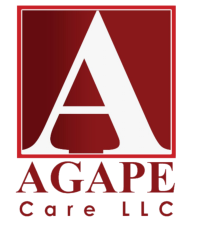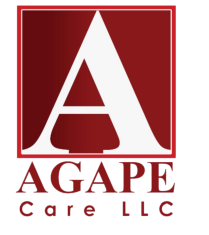As our loved ones age, ensuring they receive proper care becomes a priority. For many families, in-home care is a beneficial option, providing a comfortable and familiar environment for older adults while receiving the necessary support to maintain their well-being. However, navigating the financial aspects of in-home care can be overwhelming and complex.
Understanding In-Home Care
Exploring Home Care Options
When considering in-home care for elderly loved ones, there are various options available to meet their specific needs. Home care services can range from assisting with daily activities to offering skilled medical care. Some families may opt for a caregiver to provide personal care and companionship, while others may require the services of a home health aide who can assist with medical-related tasks. Understanding the various options that home care agencies provide is essential for tailoring the care to the individual’s requirements and preferences.
Considering In-Home Care Costs
One of the critical factors when planning for senior care at home is evaluating the associated costs. It’s essential to consider the financial resources available, including personal savings, long-term care insurance, or assistance from programs such as Medicaid or Medicare, to pay for home care. Additionally, families may need to explore utilizing home equity or financial management strategies to cover home care expenses. Understanding the cost of in-home care services provided by care agencies and constructing a financial plan is integral to alleviating potential financial strain.
Understanding Home Health Care Services
Home health care services encompass a wide range of support, including skilled nursing, therapy, and assistance with activities of daily living. It is essential to comprehend the type of care provided by home health agencies and how it differs from other home care options. Understanding the benefits and coverage of home health care services is vital for ensuring that elderly loved ones receive the necessary care and support to maintain their well-being.
Financial Planning for In-Home Care
When considering in-home care for elderly loved ones, it’s crucial to explore the potential financial assistance available. This could include government programs such as Medicaid or Medicare, as well as long-term care insurance. Understanding the various financial assistance options can help alleviate the financial burden of senior care at home and ensure that your loved ones receive the quality care they need.
Exploring Financial Assistance for Home Care
Exploring potential financial assistance options for home care is essential for many families. Medicaid and Medicare are common care benefit programs that a family caregiver can utilize to gain financial aid for senior care at home. Furthermore, long-term care insurance can offer coverage for home care costs associated with care providers. Comprehending and assessing the eligibility and coverage of these care benefit programs is crucial to planning to pay for home care successfully.
Understanding the Cost of Home Care
It’s crucial to evaluate and understand the costs of hiring a care provider for in-home care for effective financial management. This includes considering the hourly rate for home care services as well as the overall care expenses. Evaluating the financial situation and exploring resources such as home equity or financial management strategies can help cover the cost of home care. Developing a comprehensive financial plan can mitigate the potential financial burden associated with in-home care for elderly loved ones.
Financial Management for In-Home Care
Managing the financial aspects of in-home care involves understanding the various care options and their associated costs. This includes exploring the type of care provided, such as personal care, home health care, or respite care, and assessing their benefits and coverage. Additionally, considering the hourly rate for home care and developing a financial plan tailored to the specific needs and preferences of elderly loved ones is essential for effective financial management.
Long-Term Care Financing Options
When planning for the long-term care of elderly loved ones, it’s essential to explore the various financing options available to cover the costs associated with in-home care. Successfully navigating these options can help mitigate the financial burden and ensure that your loved ones receive the quality care they need from home care agencies. Recognizing the different financing pathways, like Medicaid coverage for care at home, long-term care insurance, and tapping into Medicare for in-home care, is essential for effective financial planning.
Navigating Medicaid Coverage for In-Home Care
Medicaid is a government assistance program that can provide financial aid for in-home care services for eligible individuals. Understanding the eligibility criteria and coverage of Medicaid can help families assess the potential financial support available. Navigating the application process and requirements for Medicaid coverage for in-home care is essential for effectively utilizing this assistance program to cover the costs of care.
Understanding Long-Term Care Insurance
Long-term care insurance is a valuable option for financial planning for in-home care. This type of insurance can offer coverage for home care costs, providing families with a financial resource to support their elderly loved ones’ care needs. Understanding the benefits and limitations of long-term care insurance and assessing the available coverage options is essential for effectively utilizing this financial tool to alleviate the financial burden of in-home care.
Utilizing Medicare for In-Home Care
Medicare is another government care program that can be utilized to cover specific in-home care services from care agencies for seniors. Understanding the coverage and limitations of Medicare for in-home care is crucial for assessing the financial assistance available. Exploring the different Medicare plans and their coverage for home care expenses can help families effectively leverage this program to support their loved one’s care needs.
Finding the Right In-Home Care Provider
Cost is undoubtedly important, but finding a qualified and compassionate care provider is equally crucial. Consider the following when researching agencies or individual caregivers:
Licensing and certifications: Ensure the provider holds relevant licenses and certifications for the specific care needed.
Experience and qualifications: Look for caregivers with experience working with your specific needs and population (e.g., seniors and individuals with disabilities).
References and reviews: Request and check references from past clients or consult online reviews.
Communication and responsiveness: Assess the provider’s communication style and ability to answer your questions clearly and promptly.
Care plan and cost transparency: Ensure the provider outlines a detailed care plan and transparently explains all associated costs.
Conclusion:
Navigating the financial aspects of in-home care can be daunting, but numerous resources and support systems are available to assist you. By understanding the cost factors, exploring funding options, and carefully selecting a qualified provider, you can ensure your loved one receives the care they need while managing the financial implications effectively. Remember, in-home care can be a valuable investment in well-being, independence, and peace of mind, both for the recipient and their family.
Additional Resources:
National Center for Caregiving: https://www.caregiving.org/
Family Caregiver Alliance: https://www.caregiver.org/
Eldercare Locator: https://ncea.acl.gov/home
Medicare.gov: https://www.medicare.gov/
Medicaid.gov: https://www.medicaid.gov/


